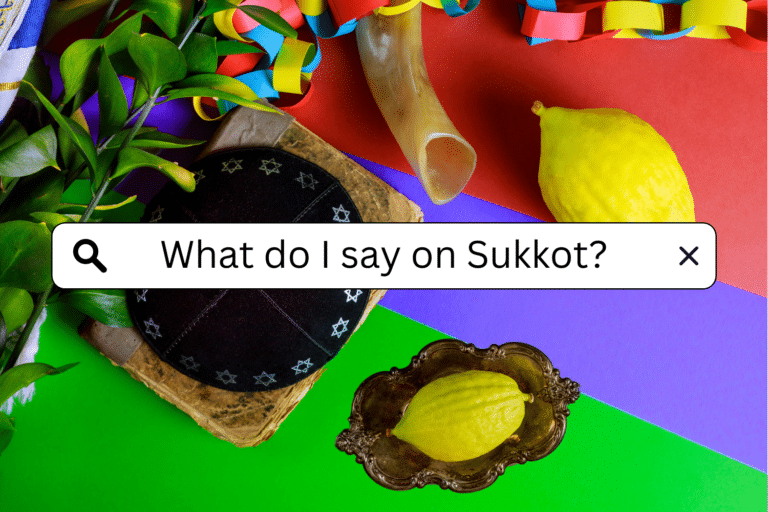
Sukkot, one of the Jewish harvest holidays is here! In 2024, the week-long festival begins after sundown on of Wednesday, October 16 and ends at sundown on Wednesday, October 23.
Sukkot is one of the most joyous Jewish holidays, so this pilgrimage holiday is a perfect time to acknowledge your Jewish friends, colleagues, and classmates with a holiday greeting.
(Did Sukkot creep up on you? No worries! Here’s a last minute checklist to help you get ready!)
To greet someone during Sukkot, you can simply say “Happy Sukkot” or use the following:
Chag sameach (Happy holiday)
Chag sameach means happy holiday in Hebrew. Sweet and simple.
Chag Sukkot sameach
Chag Sukkot sameach translates directly to “Happy Sukkot” in Hebrew. If you’re looking for a way to acknowledge the holiday with a bit more effort — this is an easy pick.
Moadim L’simcha
This phrase literally means “times of joy” but is used to wish someone a happy holiday. Use this during Chol Hamo-ed (the intermediate days of Sukkot).
If someone says this to you, you can reply with the traditional response, “chagim u’zmanim l’sasson” (“holidays and times for celebration”).
What is Sukkot?
Sukkot is one of three Pilgrimage Festivals (major holidays mentioned in the Torah on which Jews would travel to the ancient Temple in Jerusalem). The other two Pilgrimage Festivals are Pesach (Passover) and Shavuot (Feast of Weeks). Although Sukkot is the most common name of this holiday, it is also called Chag Ha-asif (“the Feast of Ingathering”). This refers to rejoicing and thanking God in the period after the crops had been harvested. In Yiddish the holiday is often referred to as “Sukkus,” and many Jews of Ashkenazi descent pronounce it that way.
Sukkot means “booths” or “huts” in Hebrew and is named for the temporary structures in which Jews “dwell” during the holiday. Meals are eaten in the sukkah, and many choose to sleep, read and hang out in them as well. According to a tradition from the Talmud, the sukkah represents the portable huts or tabernacles in which the Israelites lived during the 40 years they wandered the desert.
At the same time, Sukkot is a holiday of vulnerability and insecurity, recalling the fragile condition of the Israelites wandering in the desert and their total reliance on God.
